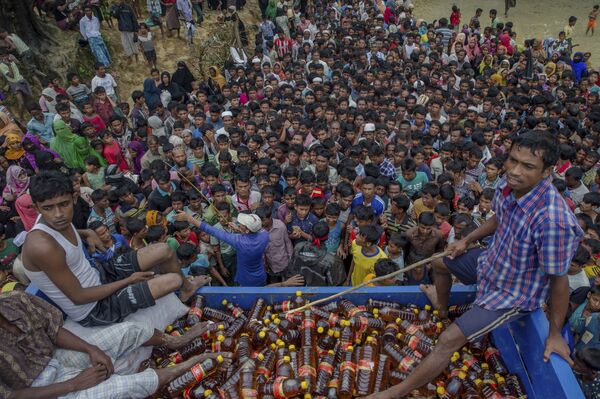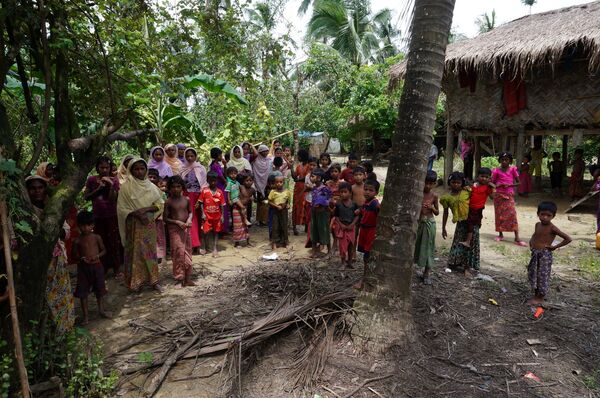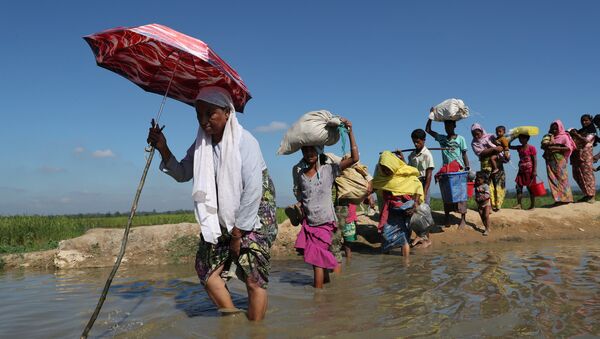The ministerial meeting came as China called for a three-phase solution to the issue so that Rohingya Muslim refugees could return to Myanmar from neighboring Bangladesh.
Reuters cited Chinese Foreign Minister Wang Yi as saying that Beijing hopes on Myanmar and Bangladesh hammering out a mutually acceptable way to resolve the situation.
Wang said that the first phase of China's plan stipulates implementing "a ceasefire on the ground" in order "to return to stability and order, so the people can enjoy peace and no longer be forced to flee."

"With the hard work of all sides, at present the first phase's aim has already basically been achieved, and the key is to prevent a flare-up, especially that there is no rekindling of the flames of war," Wang pointed out.
He added that the sides should then wait to see a ceasefire working, something that should be followed by Myanmar and Bangladesh agreeing terms for the return of Rohingya refugees.

"The final phase should be to work toward a long-term solution based on poverty alleviation," according to Wang, ascited by Reuters.
The Rohingya crisis, which originated in a conflict dating back to the 19th century, intensified on August 25, 2017, when Muslim insurgents of Rohingya origin attacked security posts in Myanmar's Rakhine State.
READ MORE: Myanmar's Rohingya Muslims Tell Their Tales of Escape to Bangladesh
The Myanmar army's subsequent brutal crackdown led to a number of clashes and the death of hundreds of Rohingya people.
According to the International Organization for Migration, the violence drove more than 610,000 Rohingya across the border to Bangladesh.


